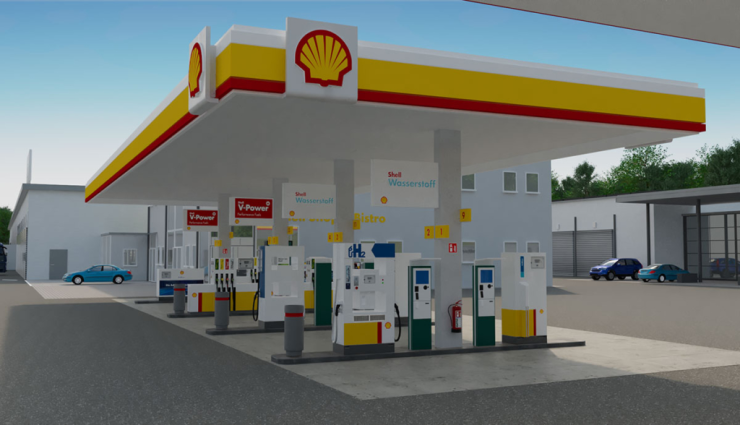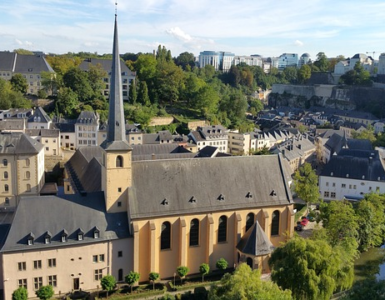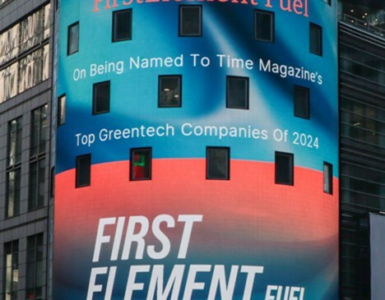Bavaria is getting one of the most powerful hydrogen filling stations in Europe.
With a ground-breaking ceremony in Passau-Sperrwies on the premises of the Paul Group, the construction of what the initiators call Bavaria’s most powerful public hydrogen filling station has begun.
The filling station infrastructure operator MaierKorduletsch is building one of the most powerful “Mobility Hubs” for hydrogen-powered vehicles – “an e-charging park in combination with a conventional filling station,” according to a statement.
In the “Next Mobility Consortium”, together with the commercial vehicle manufacturer Paul Group and Shell Germany, an ecosystem is being created to accelerate the decarbonisation of the transport sector.
🔥 What about we co-host a webinar? Let's educate, captivate, and convert the hydrogen economy!
Hydrogen Central is the global go-to online magazine for the hydrogen economy, we can help you host impactful webinars that become a global reference on your topic and are an evergreen source of leads. Click here to request more details
Hubert Aiwanger, Bavarian State Minister for Economic Affairs, Regional Development and Energy, whose ministry has provided two million euros in funding for the construction of the hydrogen filling station, broke ground at the end of August.
For hydrogen trucks, there will be two tap points at the new Mobility Hub, which is scheduled to open in mid-2023, each with a pressure of 350 bar.
Thanks to what the builders call an “extremely powerful” compressor and storage solution as well as the use of two compressors, five trucks per column will be able to refuel twice in parallel and without waiting times. The delivery of the hydrogen is ensured by several pressure trailers, each with a capacity of 1000 kg H2.
A high- and medium-pressure storage tank as well as cooling during refuelling are intended to ensure the refuelling performance in the long term. Depending on the vehicle model, between 25 and 40 kg should be refueled in 10 minutes.
Lorenz Maier, Managing Director of MaierKorduletsch, said:
With the two columns, up to 10 hydrogen trucks can be refuelled per hour.
“This strength is unique in Europe. Here we are creating the most modern and efficient refuelling facility for hydrogen in the Greater Region of Southern Bavaria.”
The Mobility Hub is being built in the immediate vicinity of the Passau-Mitte motorway exit. Other drive types are also served here: In addition to petrol, diesel and hydrogen vehicles, full-electric vehicles can be charged.
For the latter, there is a fast charging park with ten fast charging points, each emitting 150 kW. During waiting times, customers will find a shop with travel supplies and gastronomic offers on more than 200 square meters. “Already during the planning phase, great importance was attached to an exceptionally high quality of stay,” it says.
According to the creators, the energy management of the hub itself is designed to be forward-looking: “A fully integrated, sector-coupled energy concept forms the heart of this newly developed mobility hub. An in-house energy storage system offers the possibility of combining load capping, flexibility and a more effective use of renewable energies on site.”
“All roof surfaces of the plant on which it is possible are to be equipped with photovoltaic elements that produce up to 1 megawatt of power in addition to the sustainably oriented, low CO2 consumption of the entire hub.”
Paul Group, MaierKorduletsch and Shell, together with the Next Mobility consortium, offer a holistic concept for medium-duty trucks powered by hydrogen fuel cells – “from the production of H2 trucks and hydrogen production to logistics and refuelling options”.
The partners want to create a regional, scalable value chain. With the PH2P, the Paul Group has developed the first hydrogen fuel cell truck from Germany.
READ the latest news shaping the hydrogen market at Hydrogen Central
Bavaria receives one of the most powerful hydrogen filling stations in Europe, September 1, 2022








